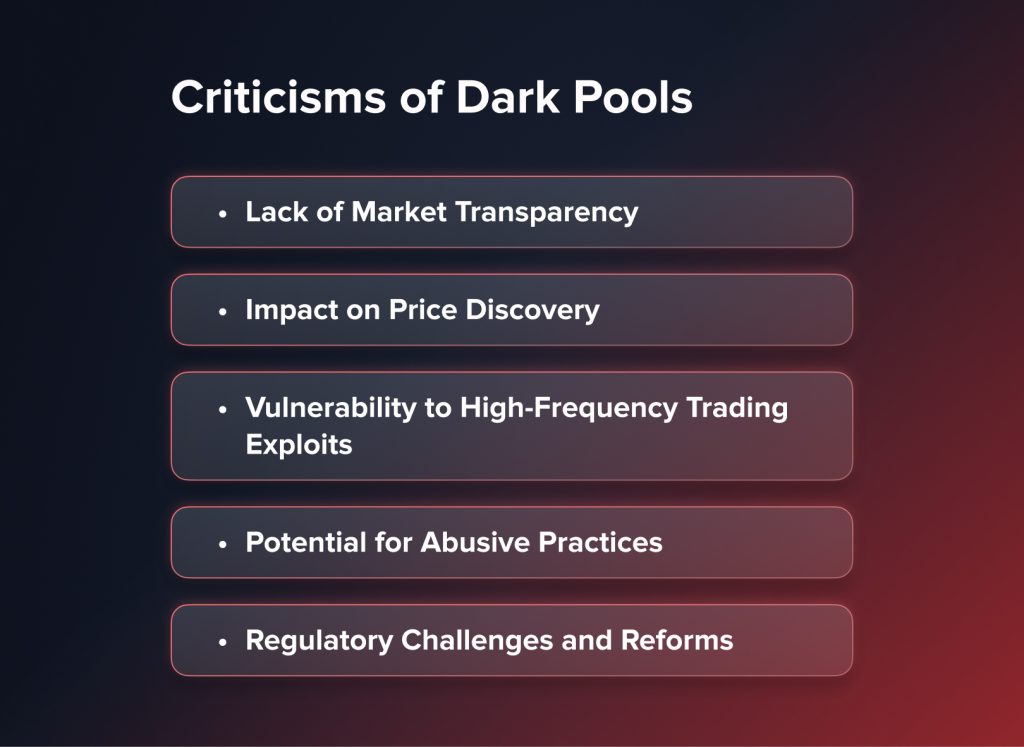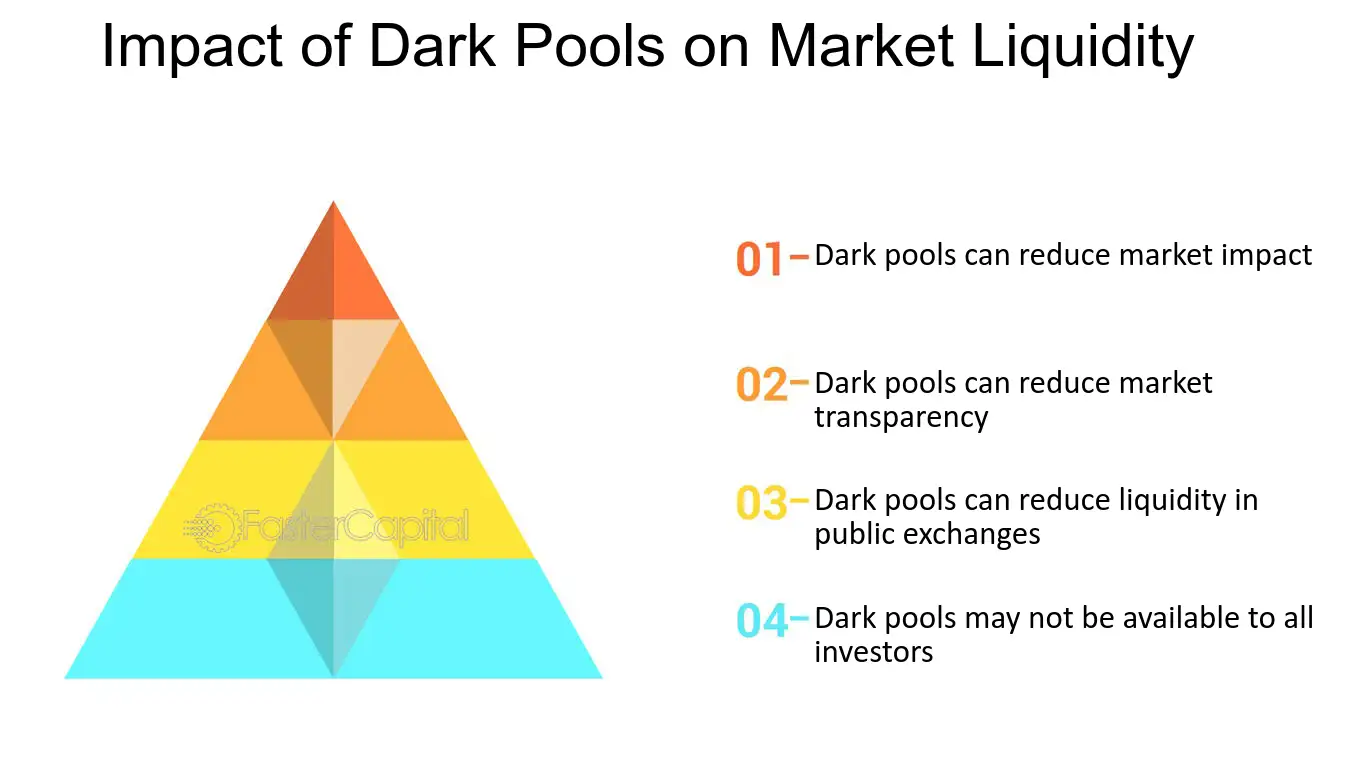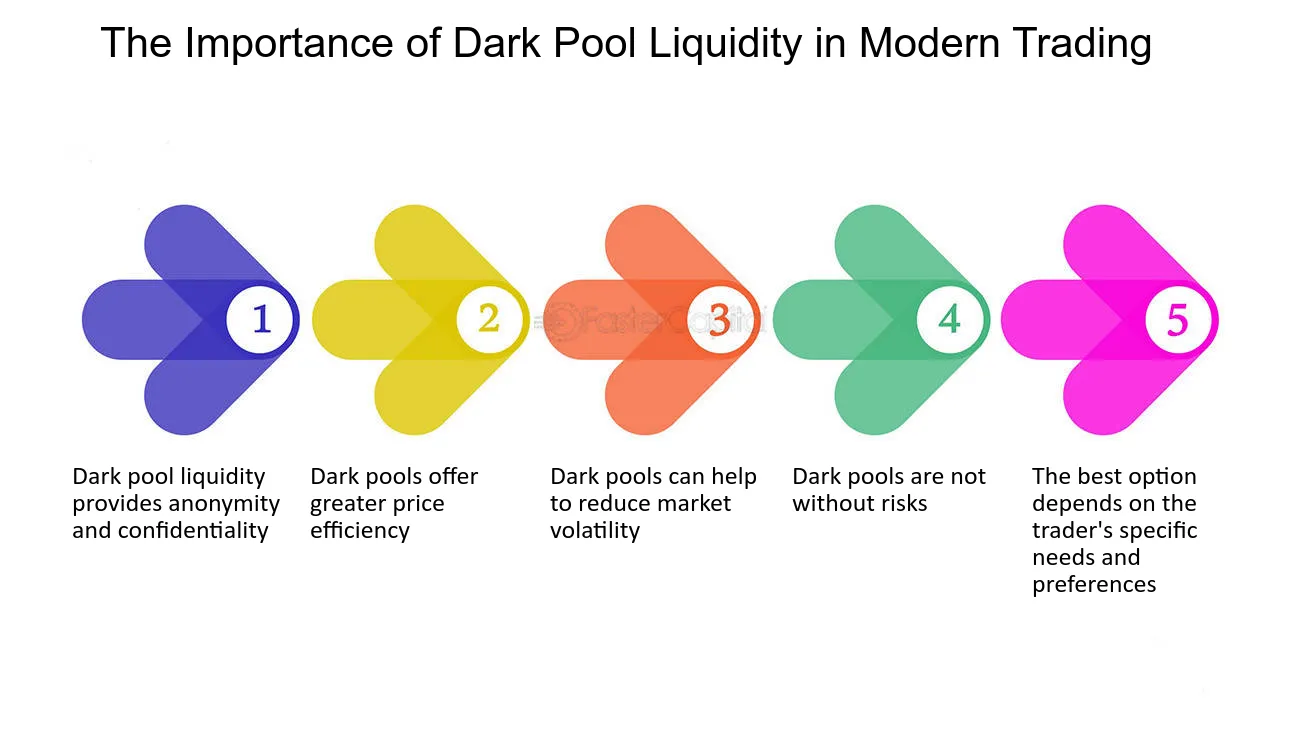Did you know that some traders prefer to make big moves in the shadows rather than under the spotlight? Welcome to the world of dark pools, where institutional trading takes on a secretive yet impactful form. In this article, we explore the ins and outs of dark pools in stock trading, highlighting their differences from public exchanges, the reasons institutions favor them, and the benefits they offer. We'll also discuss safety concerns, regulation, and how these hidden venues influence market transparency, liquidity, and volatility. Whether you're a retail investor or just curious about trading strategies, understanding dark pools is essential for navigating today’s markets. Join us as we delve into everything you need to know about dark pools with insights from DayTradingBusiness.
What Are Dark Pools in Stock Trading?
Dark pools are private stock trading venues where large institutional investors buy and sell shares anonymously. They allow big players to execute large trades without affecting the market price. Dark pools reduce market impact and price swings caused by large orders. They operate outside public exchanges, so trade details aren’t visible until after execution. This secrecy helps institutions avoid revealing their strategies and prevents other traders from front-running. Dark pools play a significant role in institutional trading by providing liquidity and enabling discreet, efficient large-volume transactions.
How Do Dark Pools Differ from Public Exchanges?
Dark pools are private trading venues where institutional investors buy and sell large blocks of securities without revealing their intentions. Unlike public exchanges, dark pools lack pre-trade transparency, so order details stay hidden until after the trade executes. This prevents market impact and price swings that can occur with big trades on public markets. Public exchanges display all orders openly, allowing anyone to see bid and ask prices, which can lead to front-running. Dark pools focus on anonymity and minimizing market disruption, making them popular for institutional traders handling substantial orders.
Why Do Institutions Use Dark Pools?
Institutions use dark pools to trade large blocks of stocks without revealing their intentions publicly, preventing market impact and price swings. They offer a private venue that reduces front-running and allows for discreet, efficient execution of big orders. Dark pools help institutions avoid revealing their trading strategies, preserving market advantage.
What Are the Benefits of Trading in Dark Pools?
Dark pools offer institutional traders anonymity, allowing large orders to execute without moving markets. They reduce price impact, helping institutions get better prices on big trades. Dark pools also provide faster execution and less market manipulation risk, making them ideal for confidential, sizable transactions.
Are Dark Pools Safe for Investors?
Dark pools are private trading venues where large institutional investors buy and sell securities without revealing their orders to the public. They can be safer for investors by reducing market impact and avoiding front-running, but they also pose risks like lack of transparency and potential for price manipulation. Overall, dark pools are safe if used carefully, but they require understanding their hidden nature and potential for less oversight.
How Do Dark Pools Impact Market Transparency?
Dark pools reduce market transparency by hiding large institutional trades from public view, preventing other traders from seeing order sizes and intentions. This lack of visibility can lead to less price discovery, making markets less transparent and potentially increasing volatility. While dark pools help institutions avoid market impact and get better execution, they limit the information available to retail traders and the broader market.
What Are the Risks Associated with Dark Pool Trading?
Dark pool trading risks include lack of transparency, which can lead to hidden market impact and price manipulation. Liquidity mismatches may cause sudden price swings. Limited regulatory oversight increases the chance of unfair practices. Large trades can move markets unexpectedly, and information leaks risk insider trading. Overall, dark pools can obscure true market prices, raising concerns about fairness and stability.
How Do Dark Pools Affect Price Discovery?

Dark pools limit transparency in trading, reducing public price discovery. They allow large institutions to buy or sell without revealing their intentions, which can delay or obscure the true market price. This lack of transparency can lead to less efficient price discovery, as the market isn’t fully informed of big trades until after they happen. Ultimately, dark pools can cause prices to deviate temporarily from the broader market’s true value.
Who Regulates Dark Pools?
Dark pools are regulated by the U.S. Securities and Exchange Commission (SEC) and the Financial Industry Regulatory Authority (FINRA).
Can Retail Investors Access Dark Pools?
Retail investors generally can't access dark pools directly. These private trading venues are designed for institutional traders to buy and sell large blocks of securities without revealing their intentions publicly. Some brokerage platforms offer retail investors indirect access through dark pool liquidity, but they can't trade there independently.
How Do Dark Pools Influence Market Liquidity?

Dark pools increase market liquidity by allowing large institutional traders to buy and sell huge blocks of shares without moving the market price. They reduce order impact and slippage, enabling smoother large transactions. This can lead to more efficient price discovery and narrower spreads in the broader market. However, they also hide trading activity, which can obscure true supply and demand, sometimes causing concerns about transparency.
Learn about How Do Dark Pools Impact Market Fairness?
What Are the Common Types of Dark Pools?
The common types of dark pools include broker-dealer owned pools, agency crossing networks, and independent dark pools. Broker-dealer owned pools are operated by large brokerages that match clients’ orders internally. Agency crossing networks facilitate anonymous trading by matching buy and sell orders without public exposure. Independent dark pools are standalone platforms that offer liquidity outside public exchanges. These dark pools help institutional traders execute large orders discreetly, avoiding market impact.
How Do Dark Pools Impact Market Volatility?

Dark pools reduce market volatility by allowing large institutional trades to happen away from public eyes, preventing sudden price swings. They help smooth out big transactions, avoiding abrupt shifts that could ripple through the broader market. Because trading occurs privately, dark pools limit the immediate impact on stock prices, leading to more stable markets for retail investors. However, they can also hide true supply and demand, sometimes increasing uncertainty and potential volatility once trades are revealed. Overall, dark pools tend to moderate short-term volatility but can introduce longer-term unpredictability.
Learn about How Do Dark Pools Impact Market Fairness?
What Is the Role of Dark Pools in Large-Scale Trades?
Dark pools are private trading venues where large institutional investors buy and sell big blocks of stocks without revealing their intentions to the public. They help these investors execute large trades discreetly, avoiding market impact and price swings. Dark pools provide anonymity, reduce trading costs, and allow institutions to manage their portfolios efficiently without signaling their moves to the market.
How Do Dark Pools Protect Institutional Trading Strategies?
Dark pools protect institutional trading strategies by allowing large orders to be executed privately, avoiding market impact. They hide trade details from the public, preventing other traders from reacting and moving prices against the institution. This confidentiality helps institutions execute big trades without revealing their intentions, ensuring better pricing and reduced market risk.
Learn about Are Dark Pools Used in Day Trading Strategies?
Conclusion about What Are Dark Pools and Their Role in Institutional Trading?
In summary, dark pools play a significant role in institutional trading by facilitating large transactions away from public exchanges, which can enhance liquidity and reduce market impact. While they offer benefits like anonymity and reduced price volatility, they also come with risks and challenges related to market transparency and price discovery. Understanding the complexities of dark pools is essential for both institutional and retail investors. For deeper insights and guidance on navigating these trading environments, consider the expertise provided by DayTradingBusiness.